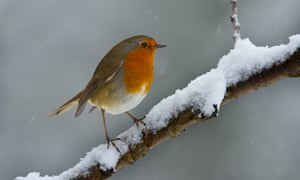A BIRD IN THE HAND
or
a bird in a book
Oystercatcher
When I'm writing my DI Sony Russell crime stories I try hard to establish place by describing the surroundings. Because much of what happens occurs in the countryside, birds are a very good way of fixing the setting. In this extract from BLOOD ON THE TIDE, the distinctive cry of curlews and oystercatchers help to establish the maritime setting.
Boats of
differing sizes and colours stood about the yard, some resting upturned on
blocks of wood or trestles, others sitting on the stony ground shrouded in
green canvas. Lengths of timber leant against the boatshed, coils of rope and
piles of chain cluttered the ground, creating hazards for the unwary. A thin
haze hung over the estuary, obscuring the horizon. Unseen oystercatchers called
as they searched for food and the mournful cry of a curlew came from some
distance away.
In BLOOD ON THE SHRINE, I wanted to capture the quiet that a thick coating of snow brings to the landscape.
THE LANDSCAPE looked picture perfect.
The fields were covered with a pristine coating of white, sparkling in the
winter sun. It was so deep that the fences and hedges that formed the
boundaries were reduced to amorphous mounds. Trees, skeletal in form, were
festooned with shimmering coatings of snow, an occasional bird landing on a
branch sending a cascade of flakes spiralling to the ground. In the distance a
plume of smoke rose lazily from a chimney but there was no sign of anything moving.
Sheep and cows were either under cover or huddled in field margins, waiting for
the farmer to bring fodder.
Robin Great Tit
Wren
Away from the coast there is a completely different selection of birds. In BLOOD ON THE SHRINE I tried to portray a quiet woodland, the one I remember from my days camping as a Boy Scout.
Although cool, it was a calm evening. The
rain had held off. The only sound was the wind, soughing in the trees and the song
of birds. Russell could identify some: robin, great tit, wren and a couple of
others he wasn’t sure about. Then there was the distant sound of a whistle and within
a few minutes, a locomotive came into sight, pulling a pair of work worn carriages
which rattled and clattered slowly over the crossing as the train climbed the
slight gradient and disappeared out of view, round the bend.
Black-headed gull
Back at the coast black headed-gulls join the other birds in an extract from BLOOD ON THE STRAND.
The sun had come
out from behind the clouds. It was going to be a warm day. Seabirds could be
heard along the river: the rising, bubbling note of a curlew; the insistent
piping of oystercatchers overlaid with the raucous bickering of black-headed
gulls. In the distance a halliard clattered rhythmically against a mast.
All three books are available in paperback or Kindle. Details on the right of the blog.






Thanks for the reminder. The sounds of nature can evoke, echo or act to underline contrasts in feelings or circumstances. Your illustrations are very good.
ReplyDeleteThank you Moya. I'm afraid I can't take praise for the illustrations this time.
ReplyDelete